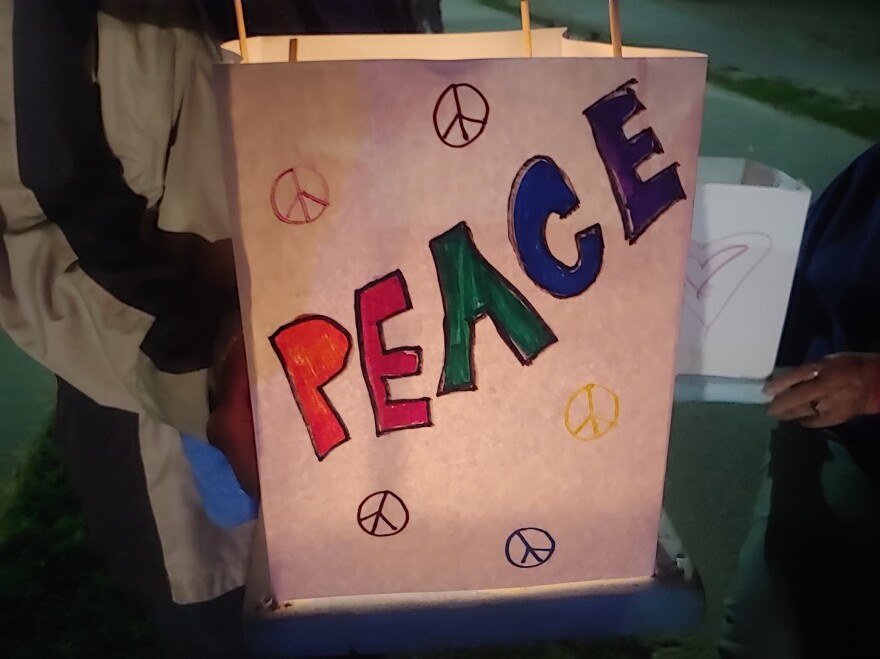Seventy-five years ago this month, the U.S. dropped atomic bombs on the Japanese cities of Hiroshima and Nagasaki, effectively ending World War II. Nuclear weapons haven't disappeared — nine nations still have a total of about 14,000 missile warheads — and that worries some in the Wisconsin medical community.
A key figure in the development of the atomic bomb was physicist J. Robert Oppenheimer. He oversaw the building of the Los Alamos National Lab in New Mexico in the early 1940s. In a 1965 interview, Oppenheimer said he was worried about German success at the start of World War II: "I thought they might very well be winning the war. "
A Waukesha historian who has written extensively about the making of the bombs dropped on Japan agrees there was a lot of concern about the military might of U.S. foes. John Coster-Mullen is the author of the book Atom Bombs: The Top Secret Inside Story of Little Boy and Fat Man.

Coster-Mullen told WUWM, "They were worried that Japan might be working on a similar weapon. So, all of the brains [scientists, military leaders], they all decided we're going to dive into this, and in two-and-a-half years, they created something from nothing."
Oppenheimer says in the 1965 interview that developing the bombs involved addressing many unknowns. "Problems of understanding the process of the explosion. In order to get some idea of how big to make the bomb. [That’s] because we didn't understand how big the explosion would be,” Oppenheimer said.
Historian Coster-Mullen says the first detonation of an atomic bomb, which took place in July 1945 at a New Mexico test range, showed what the device could do — and some of the researchers had seen enough.
Coster-Mullen says, "A number of them panicked and formed a group. They said, 'We can't drop these. We can't use 'em.' "
But the prevailing mood among U.S. officials was to use the weapons. So, on Aug. 6, 1945, Hiroshima was bombed. Three days later Nagasaki was hit.
A decision that, 75 years later, still troubles Wisconsin members of the group Physicians for Social Responsibility. State chapter President Amy Schulz is a registered nurse at the veterans hospital in Madison.
She says the nuclear explosions not only created intense heat and force in the two cities but left behind harmful radiation that led to longterm health problems.
"For example, excessive leukemia deaths, cancer deaths, non-cancer diseases. And it continued on through psychological effects. Life expectancy was decreased,” Schulz said.
Schulz says the lesson for today, during the COVID-19 pandemic, is to not spend more money on nuclear weapons, but instead invest in health. Milwaukee doctor Ian Gilson is also a member of Physicians for Social Responsibility. He says the way the U.S. has fought the coronavirus shows not what to do to end the nuclear threat.

"When we try to wing it on our own and not take lessons from other countries, and shun the World Health Organization, we have magnified our problems tremendously. It's only by international cooperation that we're going to control COVID, and the same thing happens with nuclear weapons,” Gilson said.
Physicians for Social Responsibility held an event in Madison on Thursday night that included paper lanterns to remember Japanese lives lost. In Milwaukee, members of Peace Action and other groups held lanterns at sunset, as they stood and sang along Lincoln Memorial Drive.

Susan Kane, of Peace Action, says part of her concern about nuclear weapons is health-related, "We're just so insensitive to the issues of what we're doing to each other, and I don't know what will wake people up."
Some world leaders continue to argue having a balanced stockpile of weapons actually reduces the threat of nuclear war.
Historian Coster-Mullen says he expects the debate to keep going: "It’s one of these things — what sort of weapons does your country want to create that will protect your country?"




